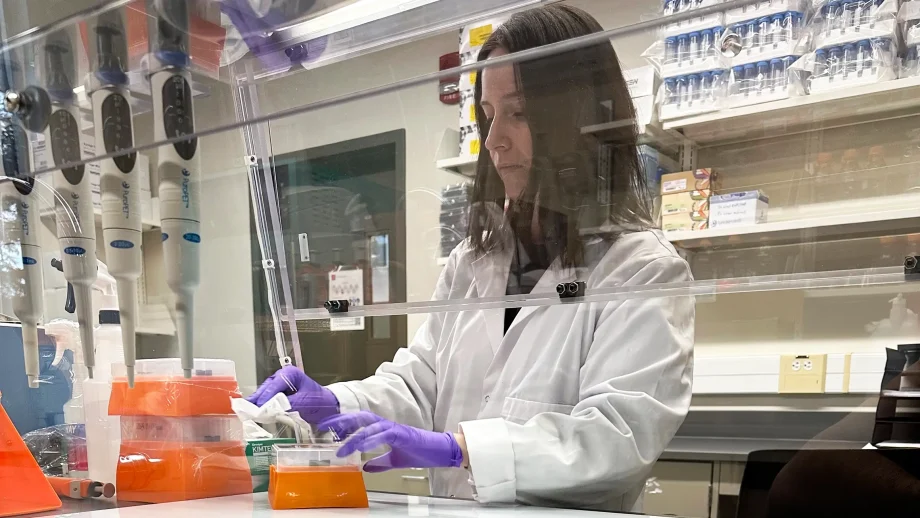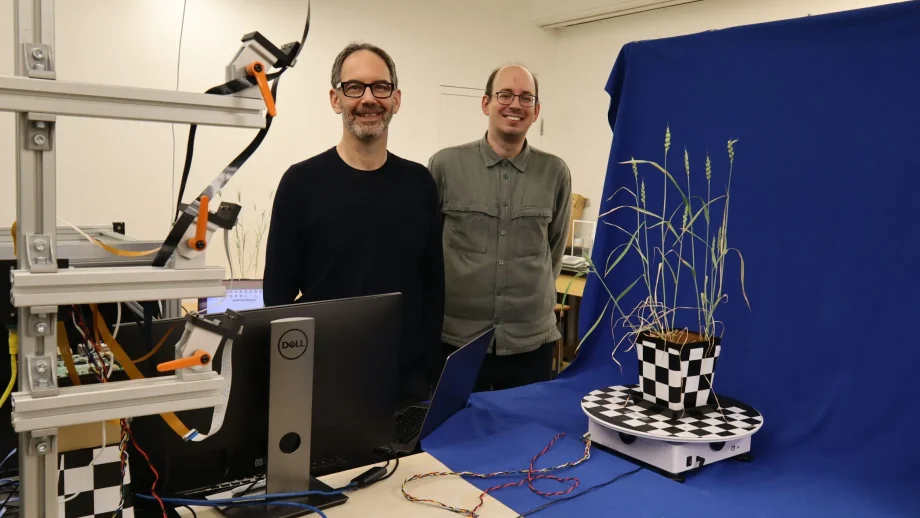October 24 to 31 is Bat Week, an important time for bat researcher Dr. Craig Willis and his students in the University of Winnipeg Bat Lab.
“Bats are incredibly diverse with nearly 1,500 species worldwide, and they are incredibly ecologically and economically important, but their populations everywhere, including in Manitoba, are in big trouble,” said Dr. Willis.
Bat Week is an international, annual celebration of bats and the need for their conservation. Despite their spooky reputation, bats are integral to the ecology with all they do: eating vast quantities of insects all over the world and, in the tropics, pollinating flowers and spreading seeds. But because bats face so many threats, from habitat destruction to climate change, putting these intriguing animals in the spotlight is more important than ever.
Our mission is to learn all we can to help bat populations while also helping people understand the fascinating biology of bats and learn what they can do to help bat populations.
Dr. Craig Willis
The North American Society for Bat Research (NASBR) holds its annual conference around the time of Bat Week each October, and this year it was in Guadalajara, Mexico. Last year, it was hosted by the UWinnipeg Bat Lab at the Fort Garry Hotel, with events at Fort Whyte Alive and other locations around the city, bringing several hundred bat biologists to Winnipeg from around the world.
This year’s symposium had a big surprise for Dr. Willis and the Bat Lab: Dr. Willis was honoured with the Gerrit S. Miller Jr. Award, an award presented by NASBR every few years in recognition of outstanding service and contribution to the field of bat biology.
“I was shocked to receive this award,” said Dr. Willis. “This is the biggest honour of our society and past recipients are all on my list of science heroes, so it is pretty unbelievable.”
Dr. Willis is quick to credit the Bat Lab team and their work for the award.
“Our recognition with this award is entirely due to years of hard work by our terrific UWinnipeg team, including amazing undergraduates, grad students and postdocs and, especially, my long-time Lab Manager, Kaleigh Norquay, and Research Associate, Dr. Quinn Fletcher. We are a true team and to have our team recognized during Bat Week was a great surprise.”
The UWinnipeg Bat Lab studies many aspects of the biology of bats and is especially focused on questions about disease ecology, hibernation biology, and conservation. Its work is funded by a range of agencies including the Natural Sciences and Engineering Research Council, Environment and Climate Change Canada, the U.S. Fish and Wildlife Service, and the Ontario Species at Risk Stewardship Fund.
“The Biology Department congratulates Dr. Craig Willis,” said Dr. Jens Franck, Department Chair. “Dr. Willis is one of the leading researchers at the University both in terms of research funding and worldwide recognition. His laboratory’s contribution to our understanding of the physiological effects of white nose syndrome are groundbreaking. Dr. Willis and members of his lab have also been extremely active in community outreach and educating the public on the importance of bats to our ecosystem. Dozens of students at the undergraduate and graduate levels have benefited from Craig’s outstanding mentorship and have gone on to make important contributions of their own.”
Dr. Willis hopes that Bat Week and the Miller Award can help highlight work by the Bat Lab, and many other Canadian and international scientists, on the long list of threats facing bats.
“From the devastating, invasive fungal disease white-nose syndrome, to industrial wind turbines, to habitat loss, bats face daunting threats and of the six bat species in Manitoba, five are either already listed as endangered or are being considered for endangered listing. But there is hope and we are testing new approaches all the time. Our mission is to learn all we can to help bat populations while also helping people understand the fascinating biology of bats and learn what they can do to help bat populations.”
Dr. Willis and the Bat Lab urge people to check out the Bat Week website as well as the Bat Lab’s own citizen science website, the Neighbourhood Bat Watch, where people can learn some amazing facts about bats and how to help them, while also contributing their own observations important for conservation.





